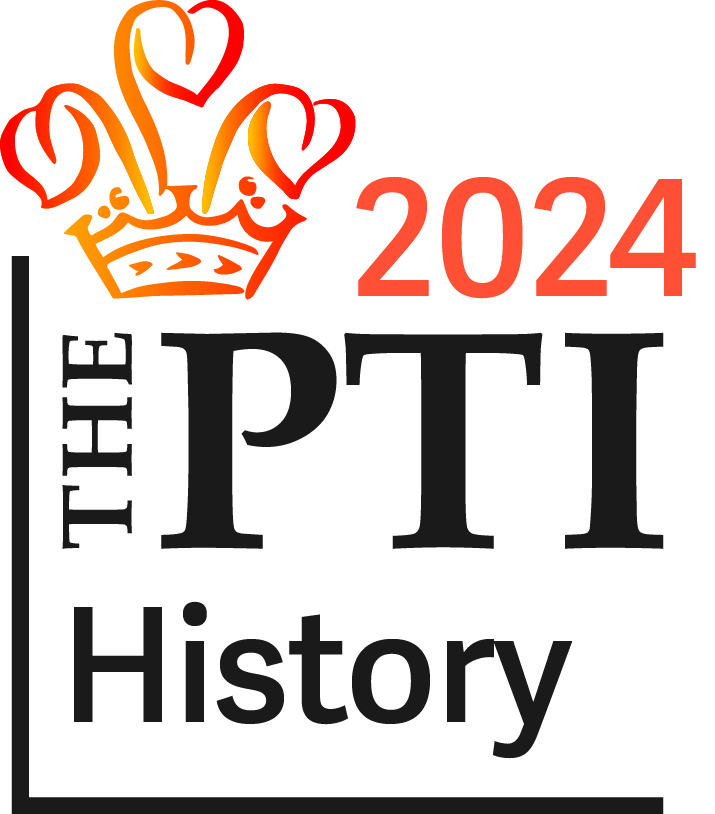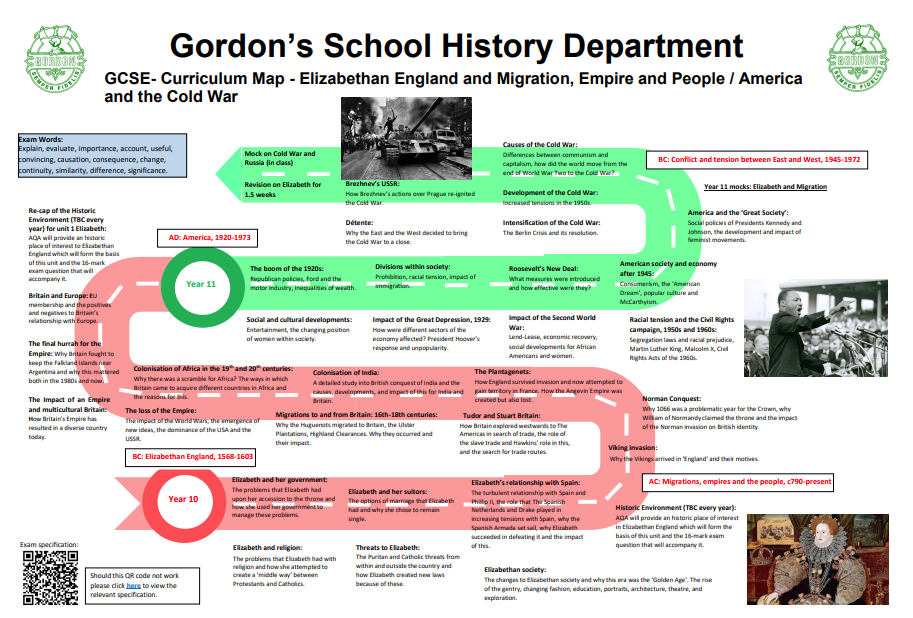History

Summary
Our philosophy is predicated on the belief that an understanding of history is vital for any young person beginning their path into adulthood and that the more varied and interesting this journey can be made, the more successful our students will ultimately become. The Key Stage 3 curriculum moves chronologically from the Middle Ages to the end of the Cold War and looks at a combination of both depth studies of individual periods but also analyses topics with greater breadth so that patterns of change and continuity can be assessed thematically across a larger span of history. Our blending of more unusual topics with the more modern world and traditional topics, ensures our students have a well-developed sense of understanding the world they find themselves in and how our history relates to current affairs. History at Gordon’s is far more than an integral part of the curriculum, it is in the very foundations of the school and the rich heritage of which we are so lucky to be a part. Therefore, we ensure that our Key Stage 3 students develop their General Gordon History project that focuses on the role of Gordon and also actively researches Old Gordonians and their role in military conflicts to allow them to connect with their foundations in a far more empathetic manner. A World War One battlefields trip in the Summer Term for Year 9 supports this learning.
Head of Department: Mr Coles:ccoles@gordons.school

Summary
We study AQA History which allows for a varied curriculum that covers a thematic study from The Vikings to the 21st century. We cover depth and period studies that focus on Elizabethan England, Russia and The Cold War. This diversity in subject allows students to develop their understanding of British, modern and global history, whilst simultaneously marking the changes and continuity over a period of 2000 years of history. We teach students the need to look at evidence critically, to challenge differing interpretations and apply their knowledge and understanding to become well-rounded historians. GCSE History is a popular option that achieves highly and many of our students continue onto A-Level.
Course details
Paper 1. Understanding the modern world
Section A. Period Studies. 1C Russia 1894-1945
Section B. Wider world depth studies.Conflict and tension between East and West, 1945-1972.
Paper 2. Shaping the nation
Section A. Thematic studies
2C Britain: Migration, empires and the people: c790 to the present day.
Section B. British depth studies including the historic environment. Restoration England. 1660-1685.
TYPICAL ACTIVITIES
- Provide a clear overview of the time periods and an understanding of chronology.
- Analyse historical evidence to draw conclusions about the past.
- Variety of tasks to develop pupils of all learning styles.

Summary
We study Edexcel Route C which focuses on Revolutions throughout History.
Course details
Year 12
Unit 1: Revolutions in Early Modern and Modern Europe: For this Unit, students will study Britain, 1625-1701: Conflict, Revolution and Settlement. They will also study historical interpretations of the Glorious Revolution of 1688-89, in order to build on analytical and evaluative skills
Unit 2: France in Revolution 1774-99: Within this Unit, students will study the causes and the course of the French Revolution, examining the consequences for the country and its people. They will gain an in-depth understanding of the challenges that faced the ancient regime, the monarchy and the people on the eve of revolution, resulting in a political, economic and social shift
Year 13
Unit 3: Germany 1871-1990: United, Divided and Reunited: Students will study social, economic and political changes in Germany and West Germany during this time period. This Unit takes them through the unification of a new state, the defeat of the First World War, Nazi rule, the establishment of a new federal republic and finally, reunification. This option comprises two parts: aspects in breadth and aspects in depth
Unit 4: Coursework: An Individual Investigation: In this Unit, students are able to develop critical analytical and evaluative skills in their own independently researched assignment, which will be 4,000 words in length. The main focus of this is to interpret and understand the work of the historian. From this, they are required to form an opinion based on applicable reading on their historical debate, and analyse, explain and evaluate the interpretations of three historians
Entry Criteria
GCSE grade 6 in History.




